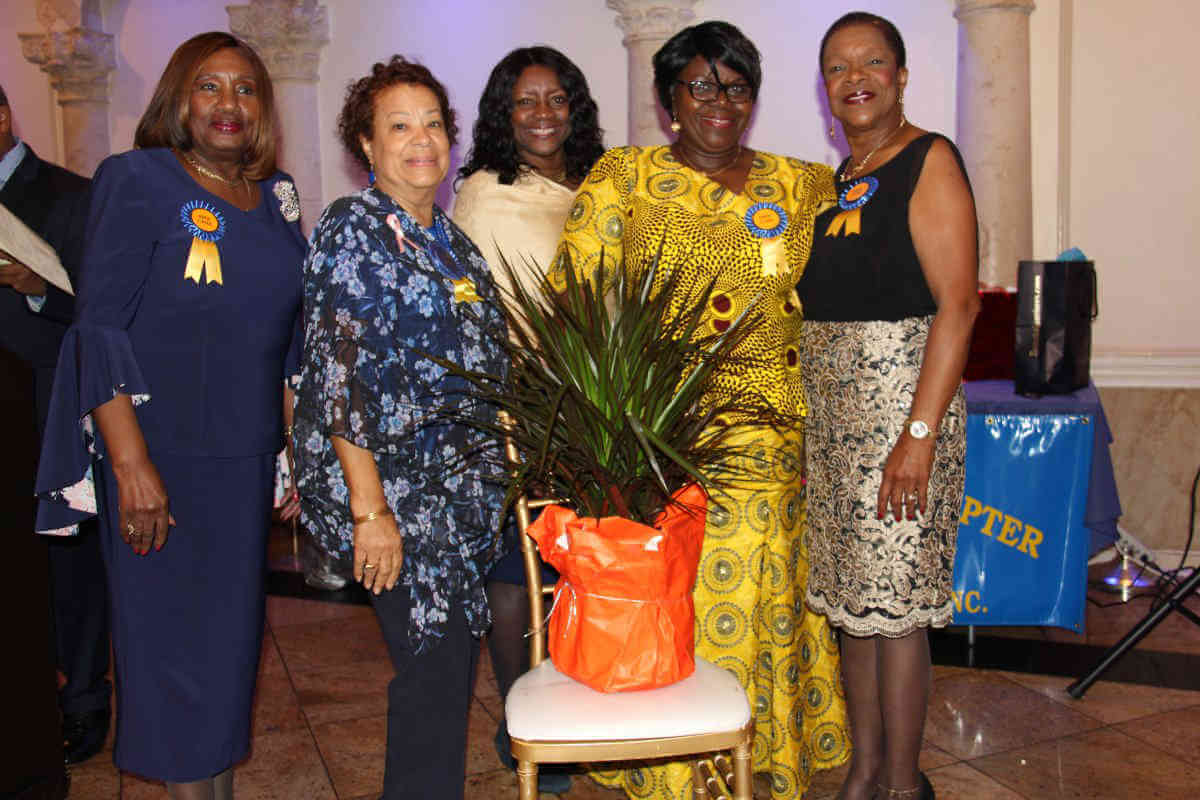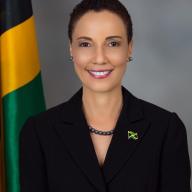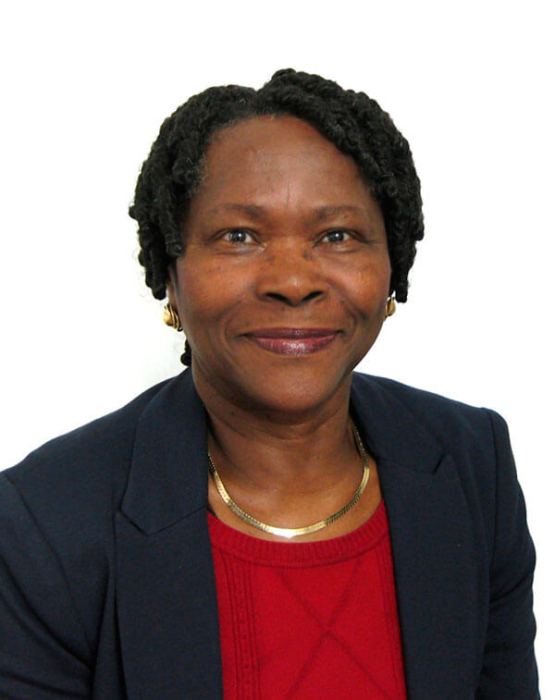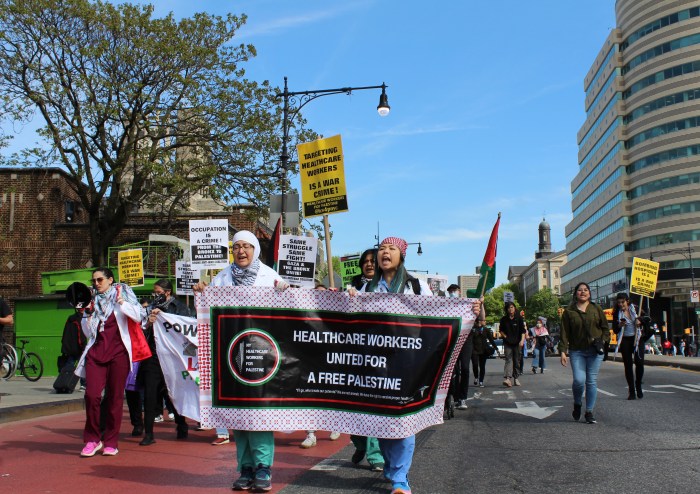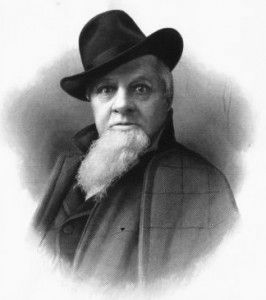Stating that the spiritual aspect of health is often times neglected and ignored, among other things, a founding member of the Caribbean American Nurses Association – Bronx, Manhattan, Westchester Chapter (CANA-BMW) says that spirituality has become a greater concern to her over the years.
Registered Nurse Hopina Quammie-Samuel, the Vincentian-born former CANA-BMW president, lamented on Saturday that spirituality has not been given the same attention as physical and emotional health, and that it is not documented when rendered.
“Spirituality was not part of many nurses’ curriculum before or after graduation (in the past),” said Quammie-Samuel in delivering the keynote address at CANA-BMW’s 24th Annual Vernese Weekes Scholarship Luncheon, at Eastwood Manor, on Eastchester Road in the Bronx.
“Many people only focused on spirituality during times of crisis or set- backs,” added Quammie-Samuel, an active member of the Creston Avenue Baptist Church in the Bronx, where she is founder and president of the Health Ministry.
She expressed concern about increase in work place violence and mental illness, including emotional instability on a whole, and the rise in the suicide rate among professionals, stating that “the time is now to speak on it (spirituality) since everyone has a need to maintain his/her spiritual health.
“Everyone can provide spiritual care to a point,” Quammie-Samuel said. “However, (one) needs to know when to get specialized help.”
She noted that many organizations address the topic of spirituality in the US, pointing to, as an example, the Joint Commission on Accreditation of Healthcare Organizations (JCAHO-2001) that establishes mandates that specifies requirements in addressing spiritual needs and practices.
According to Quammie-Samuel, JCAHO recommends, among other things, that a spiritual assessment be conducted on all patients; health care organizations (HCO) define the content and scope of the assessment; individual performing the assessment be qualified; assessment include at minimum the patient’s denomination, beliefs and spiritual practices; and that health care workers (HCW) demonstrate respect for patients’ values, religion and philosophy.
In defining, spirituality, according to Oxford Scholarship, as “one’s relationship with God, deity, supreme being or higher power,” Quammie-Samuel said spirituality is “reflected in our everyday lives, expressed through a framework of values, practices and beliefs.”
“All people – example clergy, priests, nurses, presidents – are all in need of spiritual care, no matter their beliefs,” she said, adding that the beliefs “should be respected.”
As a country becomes more diverse, she said that health care providers (HCP) encounter religious and cultural challenges while planning and providing care.
In reviewing the literature and conversing with many of her colleagues, Quammie-Samuel said she discovered that about 80 percent of health care professionals perceive religion and spirituality as “an important aspect of care.”
“Few nurses felt that they effectively addressed clients’ spiritual needs and reported some barriers,” she said, listing some of the barriers/challenges as lack of time due to the nursing shortage; inadequate education about the topic; uncomfortable talking on the topic; different religious beliefs and practices; inability to identify clients’ need for spiritual care and those in spiritual distress; the role should be played by a priest, chaplain or spiritual leader, rather than by professionals; and the need for support and guidance in addressing spiritual issues.
Alluding to the School of Health and Promotion, Quammie-Samuel said there are eight dimensions of health/wellness, with nine “in the making,” namely sexuality.
She said the eight are: Physical – the most effective way of achieving good health, regular movements, nutritious diet, adequate sleep, rest and practicing safe behaviors; Emotional – positive attitude, ability to express a wide variety of feelings in appropriate manner; Social – positive interpersonal relationships, sense of connection and belonging; Financial – money management; Occupational – engaging in meaningful, enjoyable work; Environmental – lifestyle that is committed to sustaining nature; Intellectual – seeking to expand knowledge, skills and creative abilities; and Spiritual – “the most neglected dimension of wellness.”
Quammie-Samuel said spirituality is “the ability to establish peace and harmony in our lives.
“It is achieved when you feel at peace with life,” she said. “One is able to find comfort and hope in the hardest times. It (spirituality) can help to support you as you experience life completely.
“Becoming spiritually means striving for consistency, with our values and beliefs,” she added.
Quammie-Samuel gave suggestions to help “better equip” nurses become more confident in dealing with spirituality.
She urged that they do a self-spiritual needs assessment; attend related retreats, ongoing related educational workshops; utilize myriad personal resources at work and in local community groups; interact with colleagues. chaplains, spiritual leaders and social workers; read relevant literature; address unresolved and spiritual issues in their lives, such as unforgiveness, guilt and biases; seek help after a “sentinel” event or crisis from employee assistance and help healers heal program; become active listeners; meditate and pray daily; Spend time in quietness/solitude; become part of a social network; be grateful; and pray for a “servant’s heart.”
“These have proven to help many of my colleagues personally and professionally,” Quammie-Samuel said. “A person’s health and well-being benefit when his or her spiritual needs are met (referring to Koenig, 2004).”
Quammie-Samuel received a Bachelor of Science in Health Administration and certification in Community Health from St. Joseph’s College, and a Master of Science degree in Health Education from the City University of New York at Lehman College.
Her extensive clinical experience spans adult nursing, maternal, newborn and women’s health nursing, pediatric nursing and community health.
She has held positions as instructor, nursing care coordinator, certified lactation consultant, and is currently employed as an assistant director of nursing at an unidentified hospital in the Bronx.



